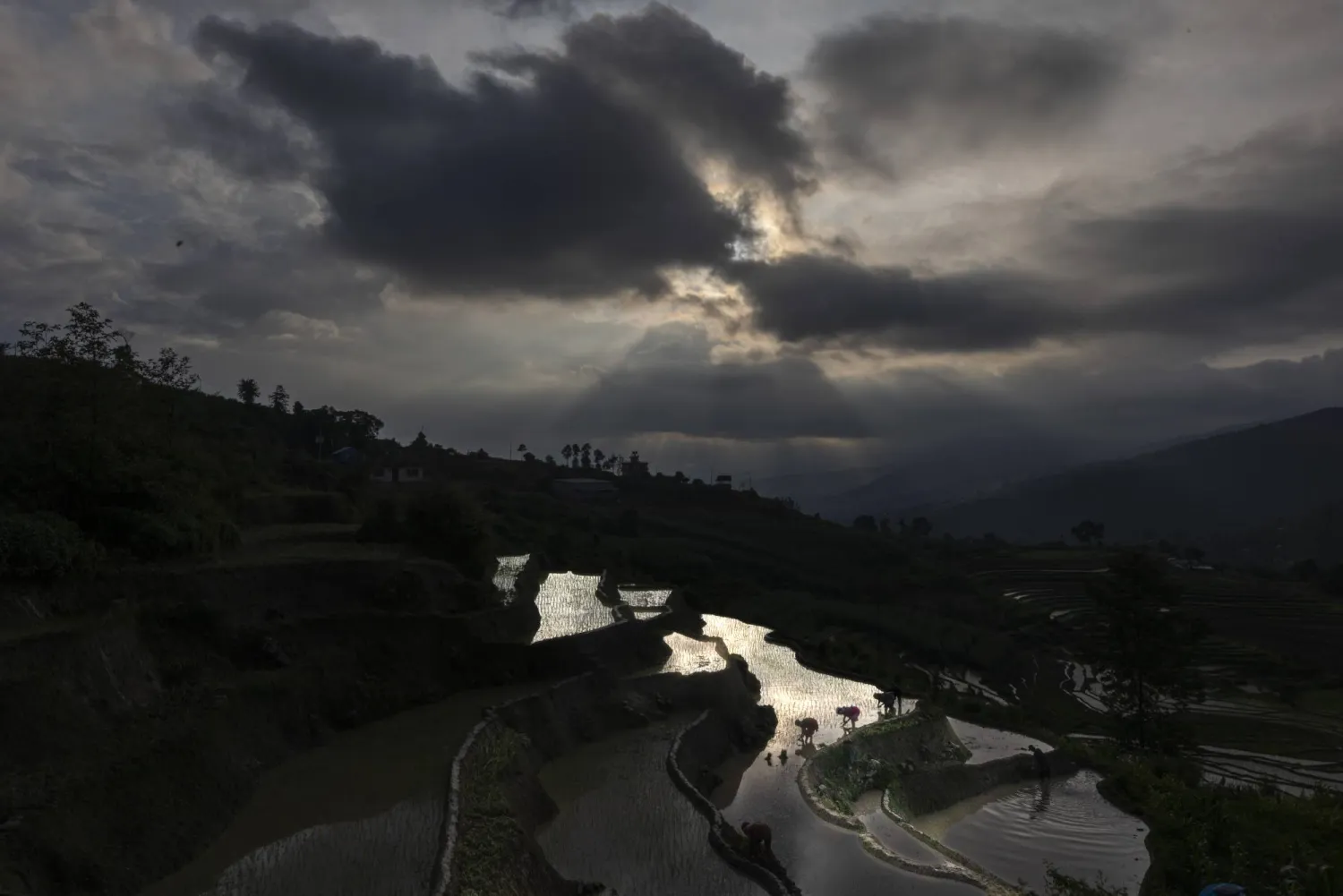At least nine people, including three children, were killed after heavy monsoon rains in west Nepal triggered landslides, an official said on Saturday.
Five members of a family were sleeping when their house was washed away by a landslide in Malika village in Gulmi district, about 250 km west of Kathmandu, according to Dizan Bhattarai, a spokesman for the National Disaster Rescue and Reduction Management Authority.
“Bodies of all five have been recovered,” Bhattarai told Reuters, adding that the family included two children.
In neighboring Syangja district, one woman and her three year old daughter died in a landslide that swept away their house, while in Baglung district, which borders Gulmi, two people were killed in another landslide.
At least 35 people across Nepal have died in landslides, floods and lightning strikes since mid-June when annual monsoon rains started. Rains normally continue until mid-September.
Landslides and flash floods are common in mostly mountainous Nepal during the monsoon season and kill hundreds of people every year.
Nepal Landslides Kill Nine, Including 3 Children

Nepalese farmers plant rice saplings in terraced paddy fields during the beginning of the monsoon season in the Nagarkot village, on the outskirts of Kathmandu, Nepal, 28 June 2024. EPA/NARENDRA SHRESTHA

Nepal Landslides Kill Nine, Including 3 Children

Nepalese farmers plant rice saplings in terraced paddy fields during the beginning of the monsoon season in the Nagarkot village, on the outskirts of Kathmandu, Nepal, 28 June 2024. EPA/NARENDRA SHRESTHA
لم تشترك بعد
انشئ حساباً خاصاً بك لتحصل على أخبار مخصصة لك ولتتمتع بخاصية حفظ المقالات وتتلقى نشراتنا البريدية المتنوعة







